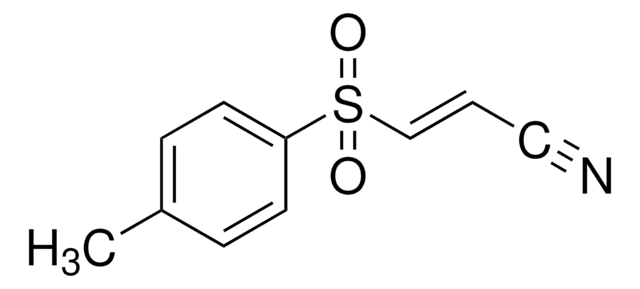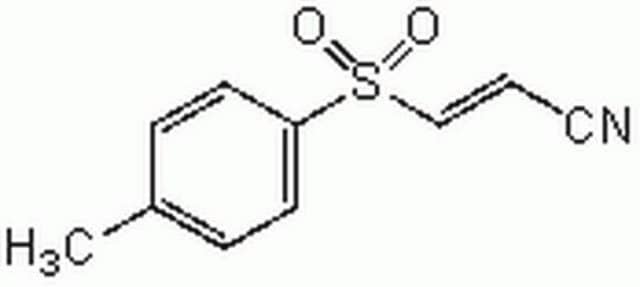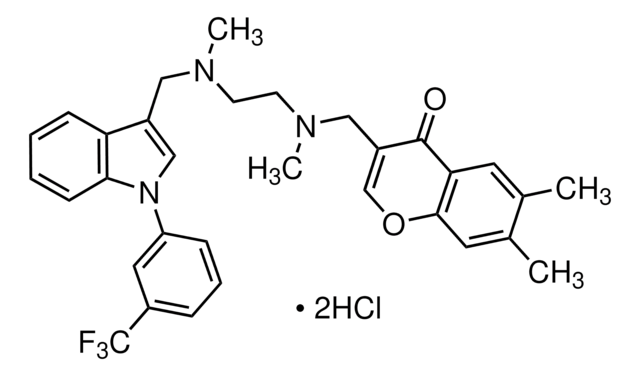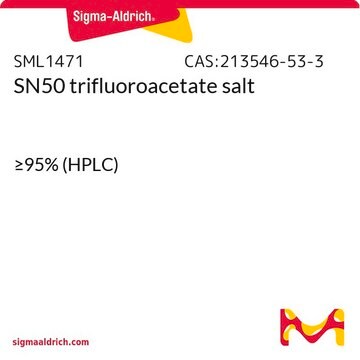J4455
JSH-23
≥98% (HPLC), solid
Synonyma:
4-methyl-N1-(3-phenylpropyl)-1,2-benzenediamine
About This Item
Doporučené produkty
Quality Level
assay
≥98% (HPLC)
form
solid
storage condition
protect from light
color
off-white to gray-pink
solubility
DMSO: >10 mg/mL
shipped in
wet ice
storage temp.
−20°C
InChI
1S/C16H20N2/c1-13-9-10-16(15(17)12-13)18-11-5-8-14-6-3-2-4-7-14/h2-4,6-7,9-10,12,18H,5,8,11,17H2,1H3
InChI key
YMFNPBSZFWXMAD-UHFFFAOYSA-N
Application
Biochem/physiol Actions
Other Notes
Storage Class
11 - Combustible Solids
wgk_germany
WGK 3
Osvědčení o analýze (COA)
Vyhledejte osvědčení Osvědčení o analýze (COA) zadáním čísla šarže/dávky těchto produktů. Čísla šarže a dávky lze nalézt na štítku produktu za slovy „Lot“ nebo „Batch“.
Již tento produkt vlastníte?
Dokumenty související s produkty, které jste v minulosti zakoupili, byly za účelem usnadnění shromážděny ve vaší Knihovně dokumentů.
Zákazníci si také prohlíželi
Náš tým vědeckých pracovníků má zkušenosti ve všech oblastech výzkumu, včetně přírodních věd, materiálových věd, chemické syntézy, chromatografie, analytiky a mnoha dalších..
Obraťte se na technický servis.














